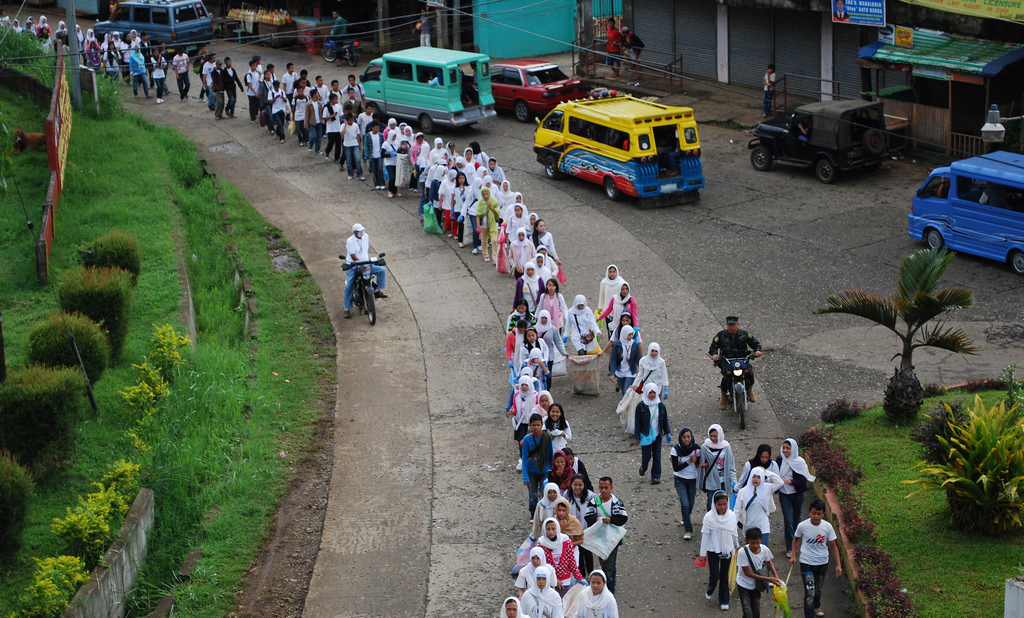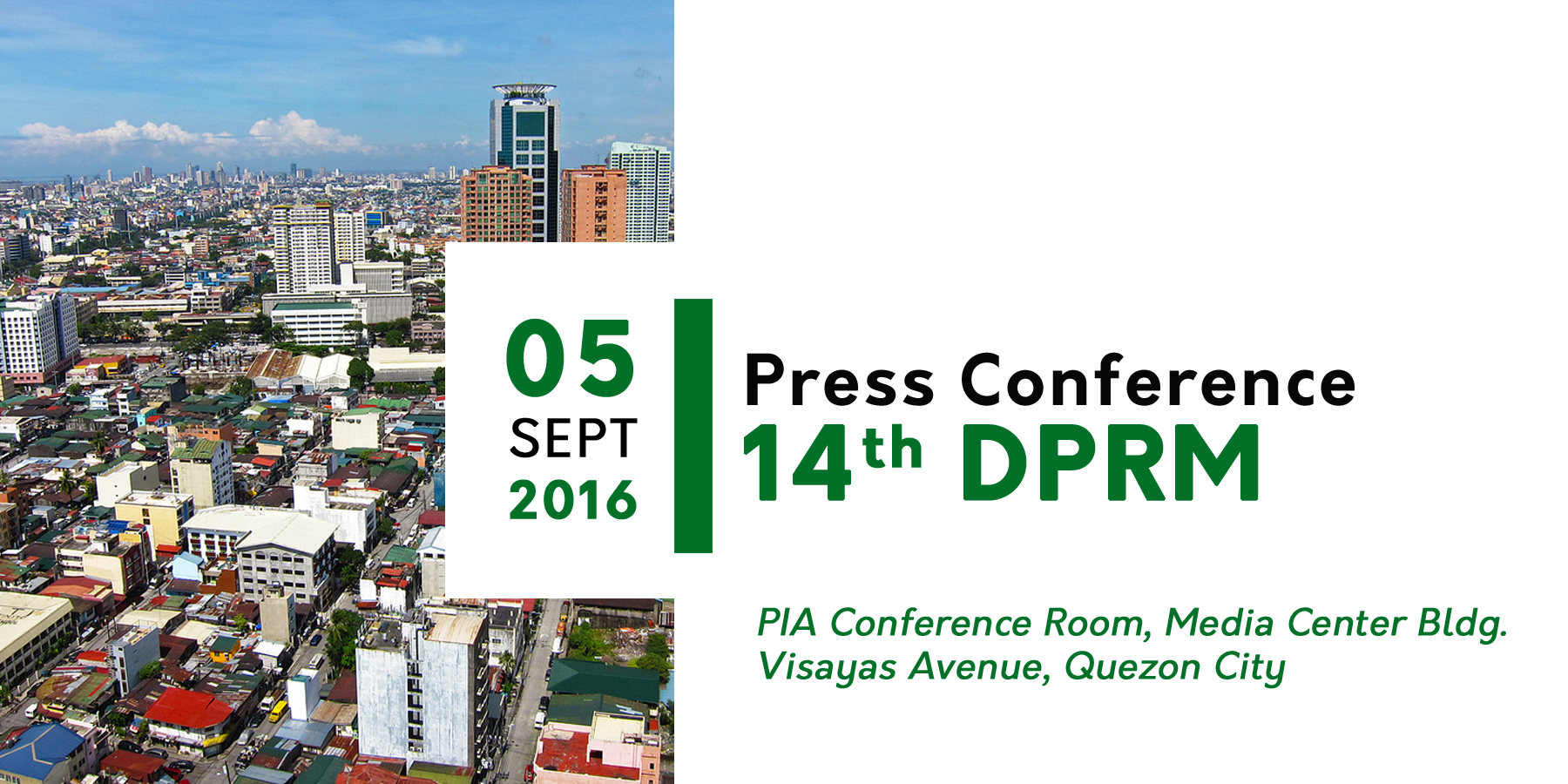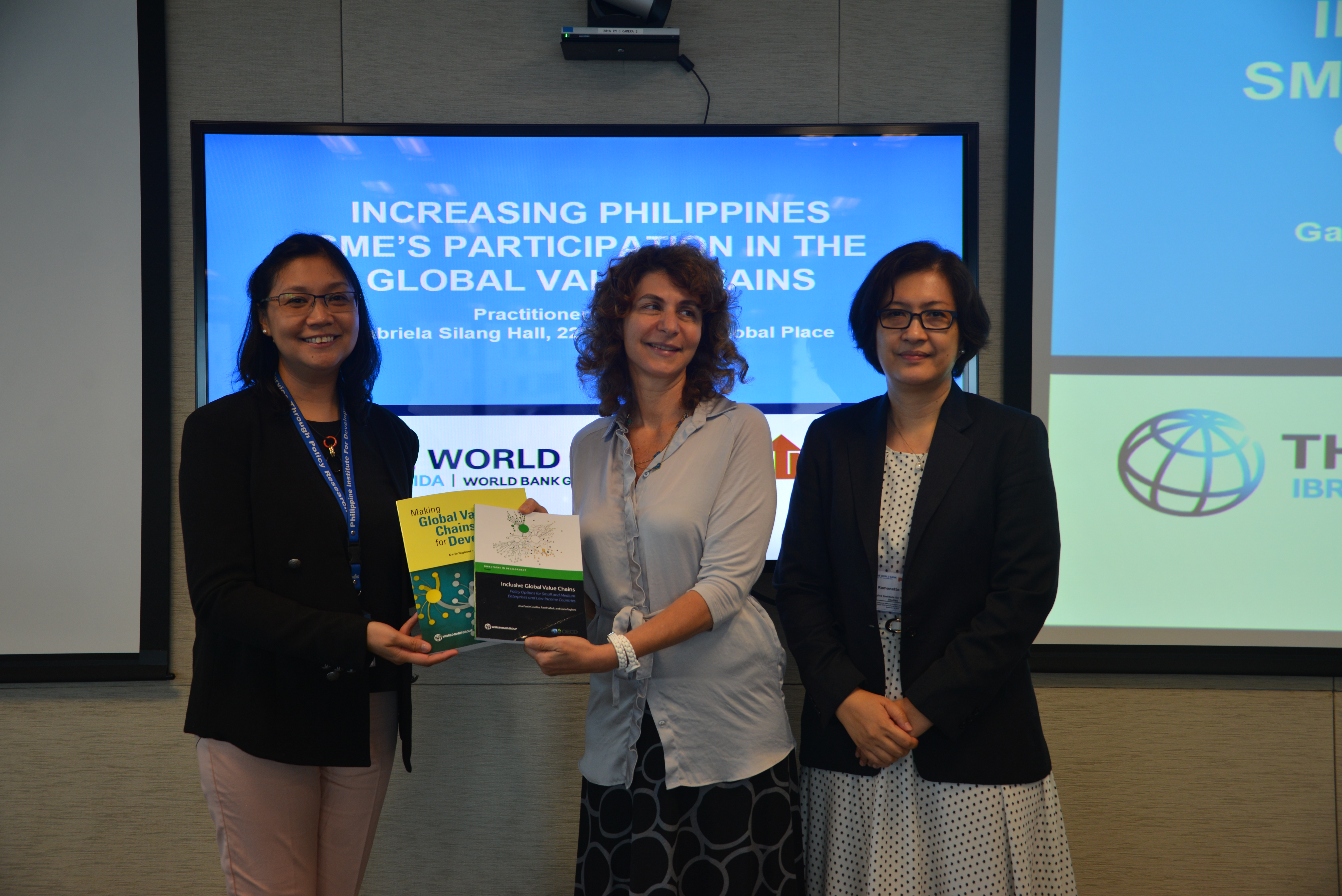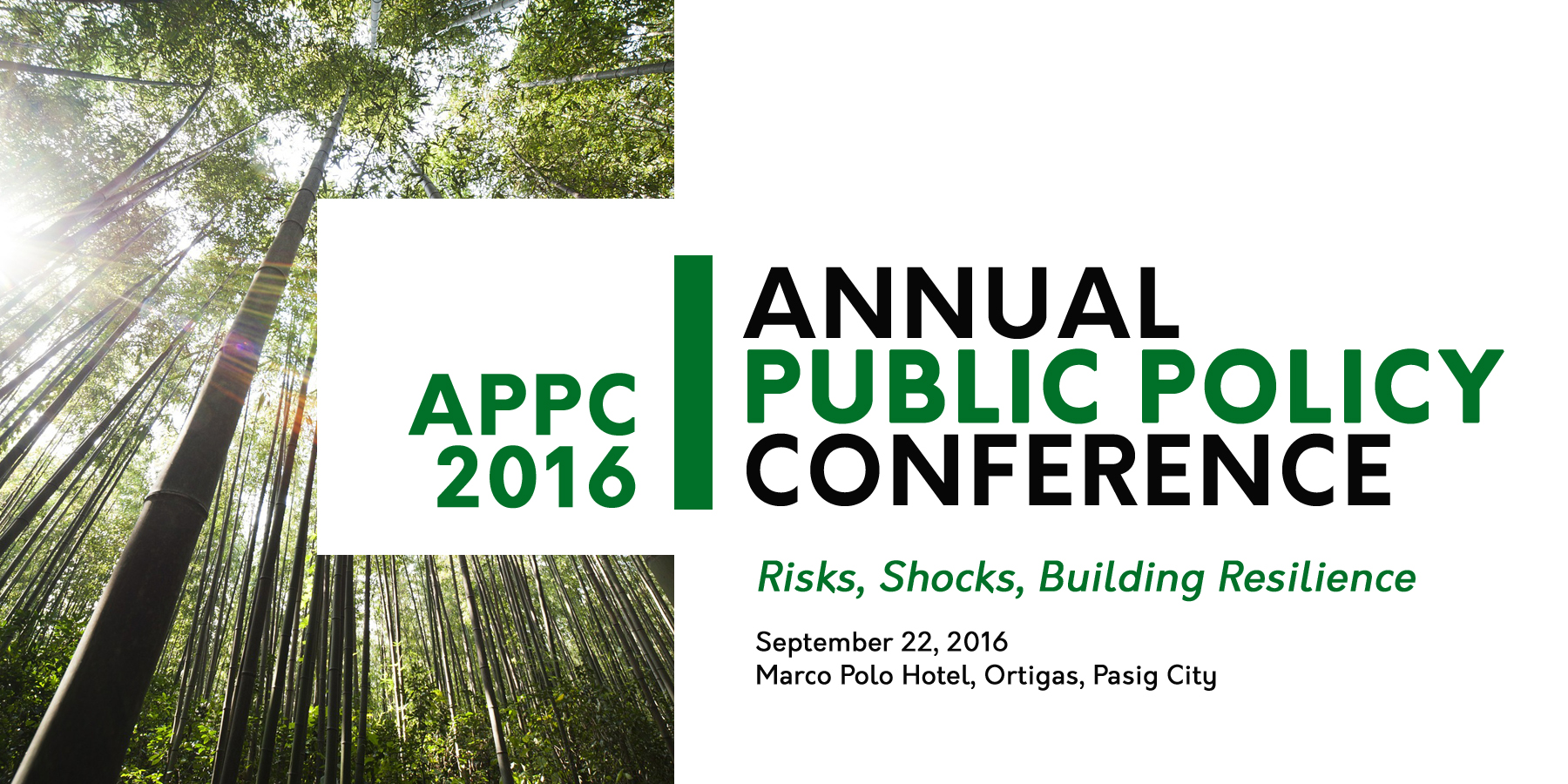
















Research and policy stakeholders in Mindanao join forces at the 2nd Mindanao Policy Research Forum

Following the successful gathering of Mindanawon researchers and policymakers in Davao City in 2015, state think tank Philippine Institute for Development Studies (PIDS) and the Mindanao Development Authority (MinDA) held the 2nd Mindanao Policy Research Forum in Butuan City on September 1, 2016. To better link policy stakeholders and the research community in the region, this year’s event was co-organized by Butuan-based Father Saturnino Urios University (FSUU) and the Commission on Higher Education-Caraga (CHED-Caraga
Kicking off the celebration of the 14th Development Policy Research Month (DPRM), the forum centered on the theme “Nurturing Resilient Communities in Mindanao toward Sustainable Development”. It brought together more than 100 participants from the local government, academe, civil society organizations, and the private sector to unpack the issues that cause the region’s vulnerability to threats and overlapping risks. Members of local tribes in Agusan del Norte also participated in the forum to air their views on matters that affect the indigenous peoples of Mindanao.
In his welcome remarks, FSUU President Rev. Fr. John Christian Young said that policy research is often neglected in the Philippines. For instance, he said that Thais and Vietnamese learned agriculture in the Philippines, but they managed to overtake the country in terms of agricultural yield and development. For him, this is a policy issue that needs to be looked at, and research plays a crucial role in doing so. Hence, he emphasized that the forum is an opportunity to build capacity in doing research and to promote its utilization—both, he said, are crucial to nation building, especially for Mindanao.
Young then raised four questions addressed to the participants of the forum: (1) How much research is utilized by policymakers, legislators, and regulators?; (2) How much resources do we put in research and in building capacity for research in our own institutions?; (3) Why are there incidences of data suppression in some government institutions?; and (4) How can we ensure truly independent research, and how do we engage other organizations to do research in validating results? These questions, according to Young, have implications in policy research and development.
“It is important to ensure that truly independent research is moved forward. Research needs to be free from politics, ideology, and even from budgetary pressure. Unless we conduct research and use it in decisionmaking, we will go around in circles, and our nation will never be served,” emphasized Young.
Engr. Ramil Sanchez, supervising education specialist at CHED-Caraga, agreed that the forum is also an opportune time to discuss pressing issues confronting Mindanao. He said that with the leadership and support of President Rodrigo Duterte, the realization of Mindanao as a “land of promise” becomes a possibility. CHED, however, is at a challenging time as changes in the education landscape, such as K to 12 and internationalization, become more apparent. Sanchez, thus, encouraged forum participants, particularly those from professional and higher education institutions, to develop a research culture that is crucial for the country’s economic and inclusive growth. He also challenged government agencies to evaluate its programs, aside from doing research on new fields. Lastly, Sanchez said that the research community has to harness technology, including social media, to collaborate with local partners in doing research. This, claimed Sanchez, will enable communities to be more resilient and to stay ahead of the many unexpected things that may happen in the future.
Dr. Sheila Siar, director for research information at PIDS, meanwhile, provided the framework of the forum and gave insights on the importance of celebrating the DPRM in Mindanao. According to her, “Mindanao is a region with so many possibilities but, admittedly, has a lot of untapped potentials in terms of human, economic, cultural, and social capital.” Siar underscored that to bring Mindanao to its fullest potential, it has to be resilient to different types of risk. “Mindanao has suffered immensely over the years from a host of overlapping risk factors, including armed conflict, natural hazards, environmental degradation, and poverty incidence.” This signals the need, she said, for a more proactive and innovative response to risks and shocks by way of evidence-based policies, programs, and interventions.
Divided in two plenary sessions, the forum focused on agricultural and environmental resilience, which are aspects that have so much impact on the region. In the morning session, PIDS Research Fellows Danilo Israel and Celia Reyes presented their studies on the impact evaluation of the National Greening Program and the Crop Insurance Program of the government, respectively. Researchers from Caraga State University opened the afternoon session with studies on responsible mining and geographic information system for local government. These were presented, respectively, by Dr. Raquel Balanay and Engr. Michelle Japitan. Dr. Shirlene Medori Alegre and Mr. Jeffrey Carin, both from FSUU, meanwhile, presented the university’s security and safety measures, and its disaster risk reduction and management initiatives.
Representatives from the Bangsamoro Development Authority, Department of Environment and Natural Resources-Caraga, Department of the Interior and Local Government-Caraga, and REACH Foundation served as discussants.
During the lunch break, a press conference on the DPRM theme “Investing in Risk Reduction for a Resilient Philippines” was held at the FSUU Board Room for the members of the local media. Siar and Israel were joined in the panel by Director Reyzaldy Tan of MinDA and representatives of the regional offices of CHED, Department of Health, and Department of Science and Technology. This was held simultaneously with a presentation for the forum participants by Mark Vincent Aranas of PIDS on the Socioeconomic Research Portal for the Philippines (SERP-P), a database with more than 5,000 socioeconomic materials contributed by PIDS and more than 50 member-institutions comprising the SERP-P network.
In his closing remarks for the forum, Tan noted that balancing green and urban development is a function of a holistic, inclusive, and sustainable growth. He also centered on “walking the talk” in building resilience, as this requires responsive and adaptive capacities, innovation, localization, education, and focusing on niches, among others.










